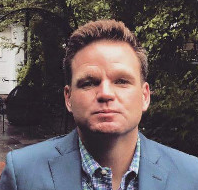The General’s Rhetorical Grunt
October 19, 2021
Colin Powell didn't always read the speeches I wrote for him verbatim. That didn't mean my work was for nothing. Especially for one speech in May, 1997 ...
Like many Americans I was saddened to learn of the passing of Gen. Colin Powell on Monday. In my case, the sadness was personal because I was the General’s speechwriter from 1997 to 2000, while he was heading a campaign for young people called America’s Promise. In that capacity, I wrote many important speeches for him, but my proudest moment as his speechwriter was when I wrote a speech for him on another topic altogether.
Many of you have seen the movie Glory, about Colonel Robert Gould Shaw and the Massachusetts 54th—the most famous Black regiment of the Civil War. Maybe you will remember that at the end of the film, the backdrop for the credits is the magnificent Augustus Saint-Gaudens Memorial to Shaw and the 54th that stands on Boston Common today.
In May of 1997, that monument was a hundred years old, and General Powell was asked to speak at the ceremonies marking the occasion. And yours truly had to write the speech.
Frankly, the assignment buffaloed me. Not only was I new to my job, but I felt hopelessly inadequate to the topic. I was a white man and a civilian. Aside from the Boy Scouts, I had never worn a uniform. In all humility I felt it would be downright presumptuous of me to present General Colin Powell with the draft of a speech that purported to speak for Black soldiers.
Instead, I suggested that I research the subject and send the General a memorandum summarizing my findings. The General could then let me know which details he wanted to include in the speech and I could write the actual draft based on his directions. The General’s aide vetoed that idea, and so I had no choice but to set to work.
Never did I research a speech as exhaustively as that one. I must have plowed through at least twenty books – including the complete letters and papers of Robert Gould Shaw. Among other intriguing historical facts, I found out that Frederick Douglass, the great civil rights leader, had given two sons—Lewis and Charles—to the 54th. I also found out that another soldier in the regiment, Sgt. William Carney, was the first Black soldier to be recommended for the Congressional Medal of Honor. Sgt. Carney had rescued the American flag when the standard-bearer fell and had carried it to safety despite being wounded multiple times. Finally, I discovered a marching song that an anonymous private had composed for the regiment. It had a refrain that went, “The Union must be saved by the colored volunteer.” Because I knew that General Powell loved anything to do with the common soldier, that refrain became the title of the speech.
General Powell rejected my first draft. I expected that he would. It wasn’t really a speech. Rather, it was the memo that I had originally wanted to write for him, dressed up to look like a speech. That little deception allowed me to parade before the General all the data that I had collected so he could pick out what appealed to him. Then, when I knew what he wanted, I could write the real first draft. As it happened, the General did like the little vignettes about Frederick Douglass’ sons, Medal of Honor winner Sgt. Carney, and the marching song penned by the anonymous private.
What I didn’t expect was that the General would cut the time so close. I had sent him the draft about two weeks before the event. But when he returned the draft to me with his extensive comments the event was less than two days away. So he wanted the revised draft by the next morning! I worked feverishly through the night, and presented the General with the draft when he arrived at the office.
General Powell had warned me from the very first day I went to work for him that he would take what he wanted from any speech draft I gave him and throw the rest away. Initially, that rather disheartened me, but I soon came to realize that every time he departed from his prepared text he was right. He had an absolutely uncanny ability to sense the mood of an audience. So in time, I reconciled myself to being the General’s grunt—doing the in-depth research that he didn’t have time to do and coming up with the little details that would add depth, drama and humor to the speech.
Often, those details meant a lot. In the case of the Massachusetts 54th speech, the General told me afterwards that there had been a descendant of Sgt. Carney in the audience, and that this very proud man had brought his ancestor’s Medal of Honor with him to the event. So, at the appropriate point of the speech, General Powell invited him up to the platform to show the medal to the crowd, and share in the applause.
When the General told me that, all the effort I had put into researching that speech seemed more than repaid. I would go on to write many more speeches for the General, often for even grander occasions, but never one that would give me greater pride.





